
How to pronounce Eloi Eloi Lama Sabachthani YouTube
It is curious that Matthew transliterated this into the Greek as the Hebrew Eli and Mark transliterated this as Aramaic Eloi. Lama is Hebrew, Lema is Aramaic and is shown as that in both Gospels in the Greek, but translators will render it as lama (Hebrew) for whatever reason.

Eloi, Eloi, Lema Sabachthani?
According to a number of sites, including Wikipedia, the saying "Eli, Eli, lama sabachthani" (or in Mark's version "Eloi, Eloi, lama sabachthani") was originally Aramaic: אלהי אלהי למא שבקתני. Courtesy of Wikipedia However, according to some other sites it is Hebrew.

Die letzten Augenblicke des irdischen Lebens von Jesus. Eloi, Eloi
Buy Now NIV, Lucado Encouraging Word Bible, Comfort Print: Holy Bible, New International Version Retail: $54.99 Our Price: $38.49 Save: $16.50 (30%) Buy Now And at three in the afternoon Jesus cried out in a loud voice, "Eloi, Eloi, lema sabachthani?" (which means "My God, my God, why have you forsaken
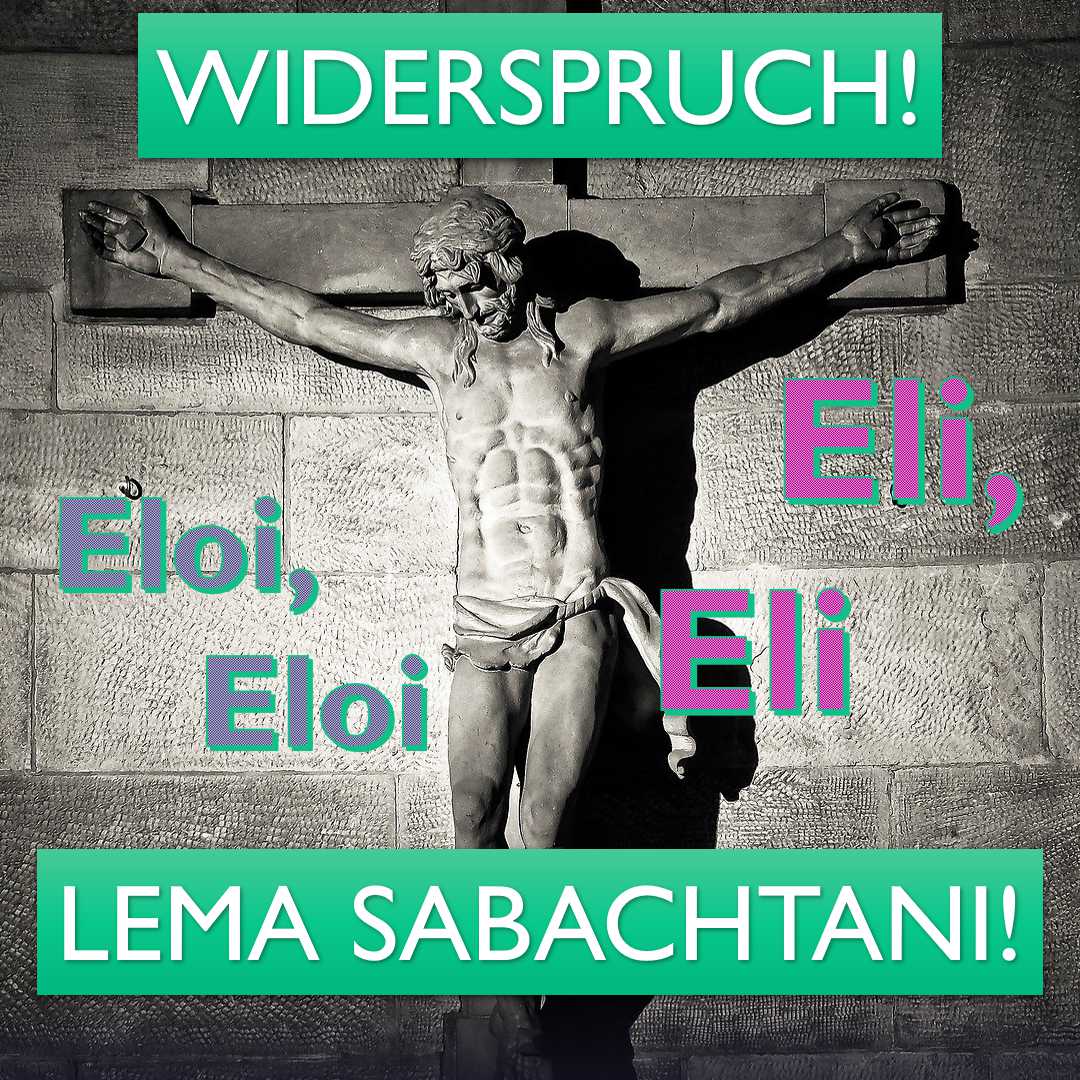
Eloi, Eloi oder Eli, Eli Lema Sabachtani! Auferstanden!
First, when Jesus cried out in a loud voice, 'Eloi, Eloi, lama sabachthani?' many assert that Jesus in His human nature, felt abandoned by God the Father. Jesus was God in the flesh. John 1:14 says, "The Word became flesh and dwelled among us." And in Phil 2:6-7, Paul says that Jesus, "although being in very nature God… was made in human likeness."

Eloi, Eloi Eloi, Eloi Lama sabachthani Eloi, Eloi Eloi,.. Dorothy
Mark 15:34 Audio Crossref Comment Greek Verse (Click for Chapter) New International Version And at three in the afternoon Jesus cried out in a loud voice, "Eloi, Eloi, lema sabachthani?" (which means "My God, my God, why have you forsaken me?"). New Living Translation
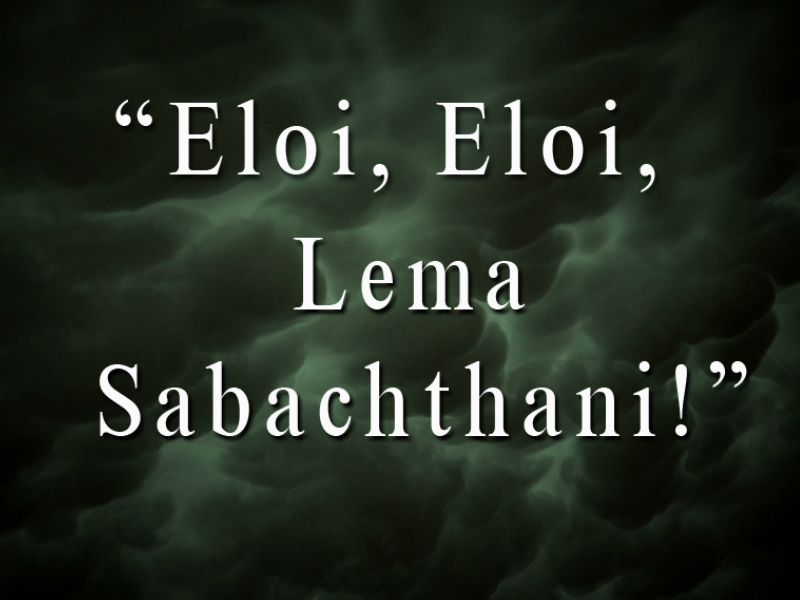
"Eloi, Eloi, Lema Sabachthani?"
Suddenly, Jesus cried out, "'Eli, Eli, lama sabachthani?'". ( Matthew 27:46 ). Matthew and Mark both record versions of these Aramaic words, quoted from Psalm 22:1, along with their clear meaning: "'My God, My God, why have You forsaken Me?'". The words seemed to hang in the air, full of pain, of loss and of isolation.

ARQUEOLOGIA E TEOLOGIA eli eli lama sabactani
Mark 15:34 — New American Standard Bible: 1995 Update (NASB95) 34 At the ninth hour Jesus cried out with a loud voice, "Eloi, Eloi, lama sabachthani?" which is translated, "My God, My God, why have You forsaken Me?". And at three in the afternoon Jesus cried out in a loud voice, "Eloi, Eloi, lema sabachthani?" (which means "My.

How to Pronounce Eloi, Eloi, Lama Sabachthani? YouTube
And at the ninth hour Jesus cried out with a loud voice, "Eloi, Eloi, lema sabachthani?" (which is translated, "My God, my God, why have you forsaken me?") TLB Then Jesus called out with a loud voice, "Eli, Eli, lama sabachthani?" ("My God, my God, why have you deserted me?"

Jesus Christ Eloi Eloi Lema Sabachthani Photograph by Acropolis De
A Greater Understanding of What Jesus Meant. "About the ninth hour Jesus cried out in a loud voice, "Eloi, Eloi, lama sabachthani?'-which means, My God, my God, why have you forsaken me?" (Matthew 27:46) This phrase has often been misunderstood because it wasn't just a cry of agony. It was also a cry of victory….

Que signifie eli eli lama sabachthani ? Significations.fr
Updated Apr 11, 2022 As Jesus was on the cross, around three o'clock, He cried, "Eloi Eloi Lama Sabachthani," which means "My God, my God, why have you forsaken me?" ( Matthew 27:46 ). Upon first glance, it can be confusing as to why Jesus would say these words. Why would Jesus say He was forsaken by God? 1. The Crucifixion
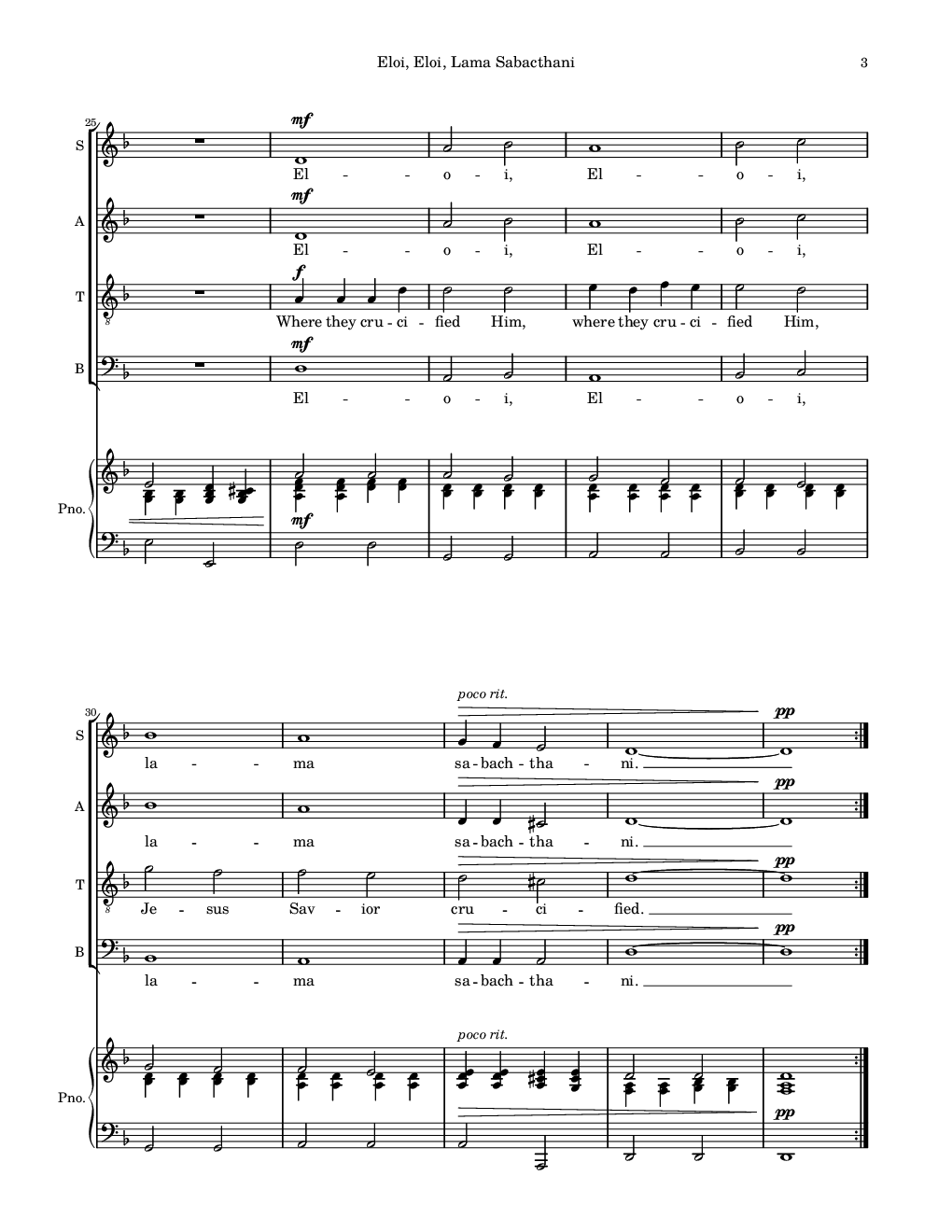
Eloi, Eloi, Lama Sabachthani Wildrose Music
. Lama Sabachthani? A Sermon (No.2133).. "And about the ninth hour Jesus cried with a loud voice, saying, Eli, Eli, lama sabachthani?. /./spurgeon/spurgeons sermons volume 36 1890/lama sabachthani.htm
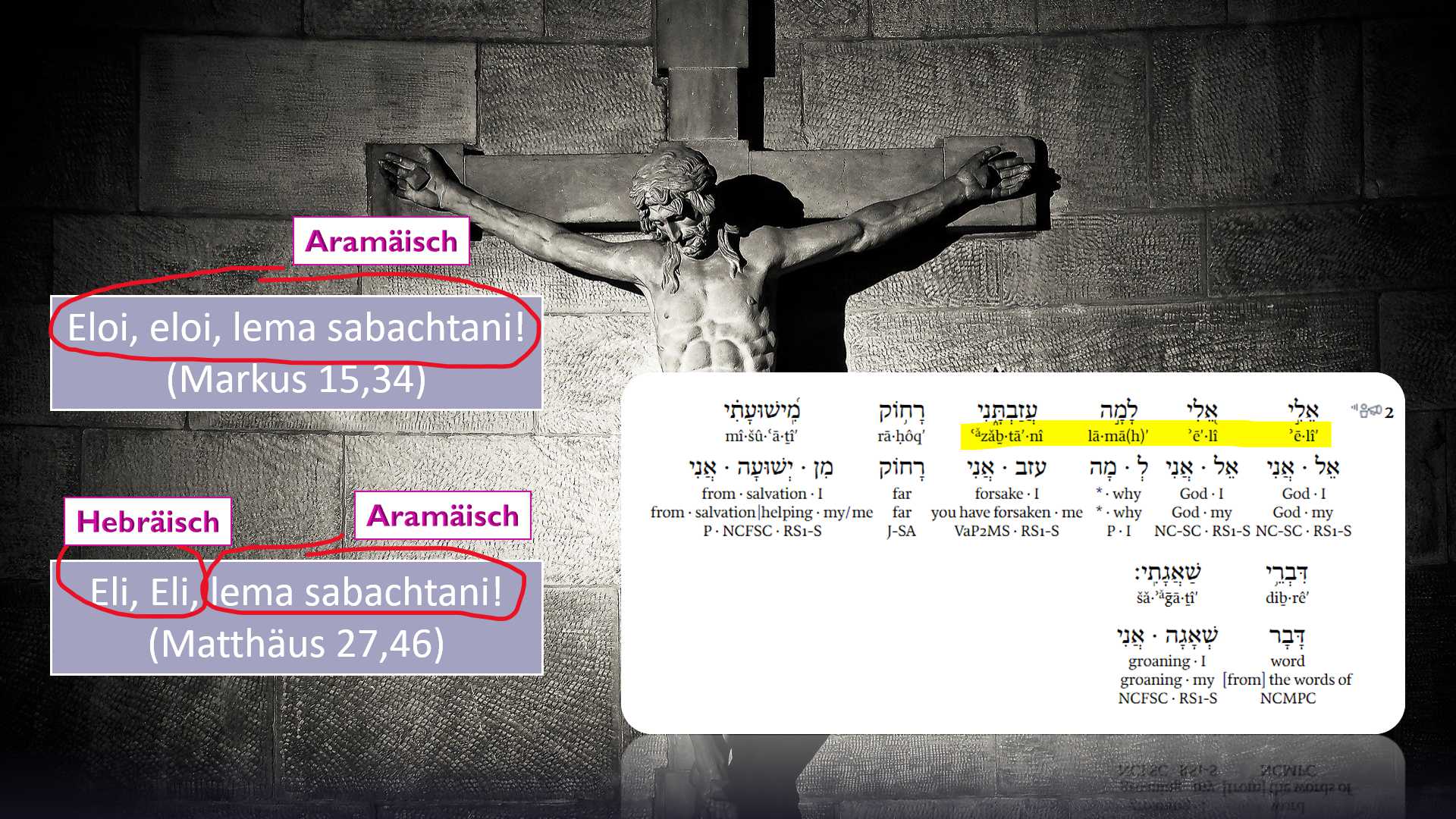
Eloi, Eloi oder Eli, Eli Lema Sabachtani! Auferstanden!
The forms lema and lama used in Matthew and Mark respectively (Westcott and Hort, The New Testament in Greek) represent the various possible forms, the first the Aramaic, and the second the Hebrew. The various readings and translations of the latter word, sabachthani, only add confusion to an effort at ultimate explanation of the real statement.
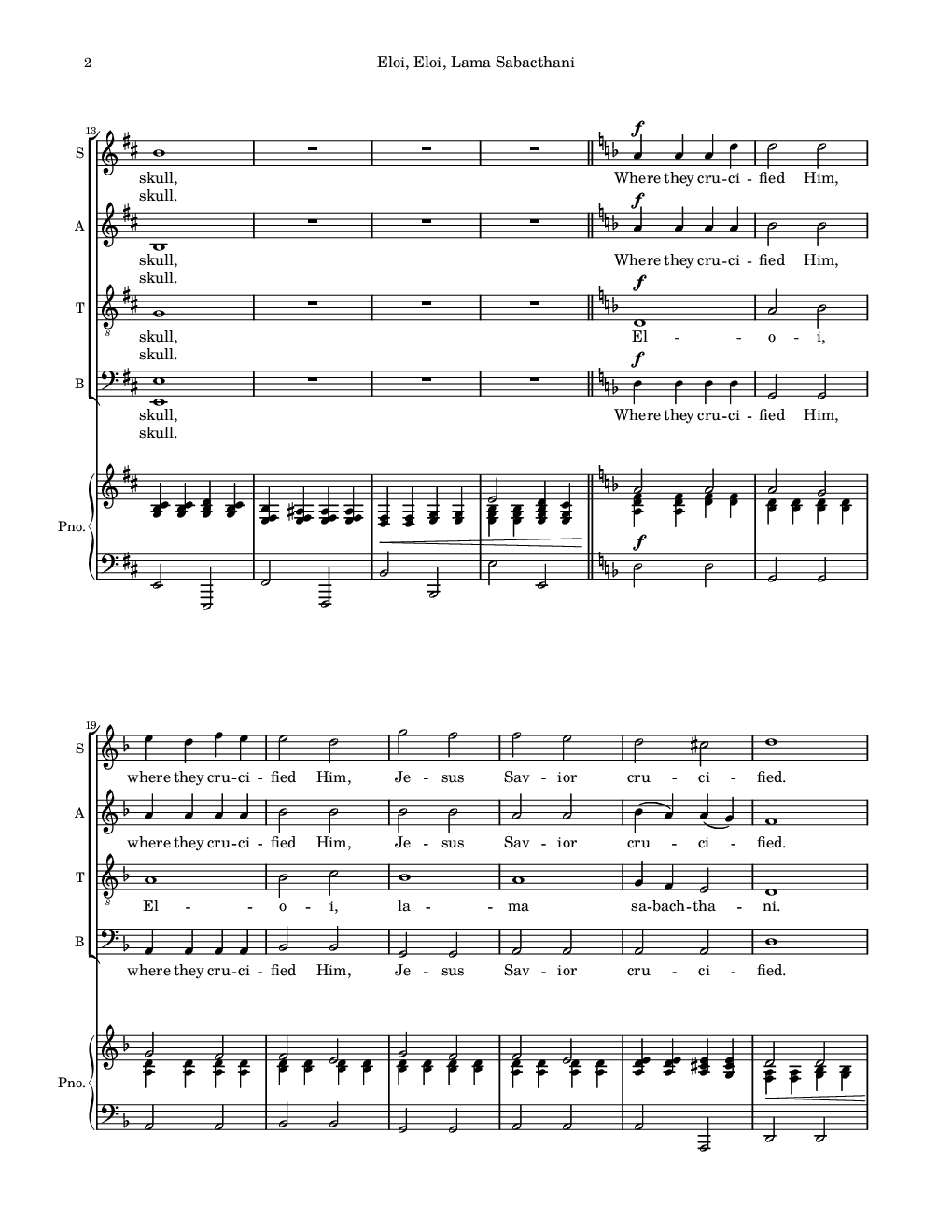
Eloi, Eloi, Lama Sabachthani Wildrose Music
Matthew 27:46: Around the ninth hour, Jesus shouted in a loud voice, saying "Eli, Eli, lema sabachthani?" which is, "My God, my God, why have you forsaken me?" Mark 15:34: And at the ninth hour, Jesus shouted in a loud voice, "Eloi, Eloi, lama sabachthani?" which is translated, "My God, my God, for what have you forsaken me?" Linguistic analysis
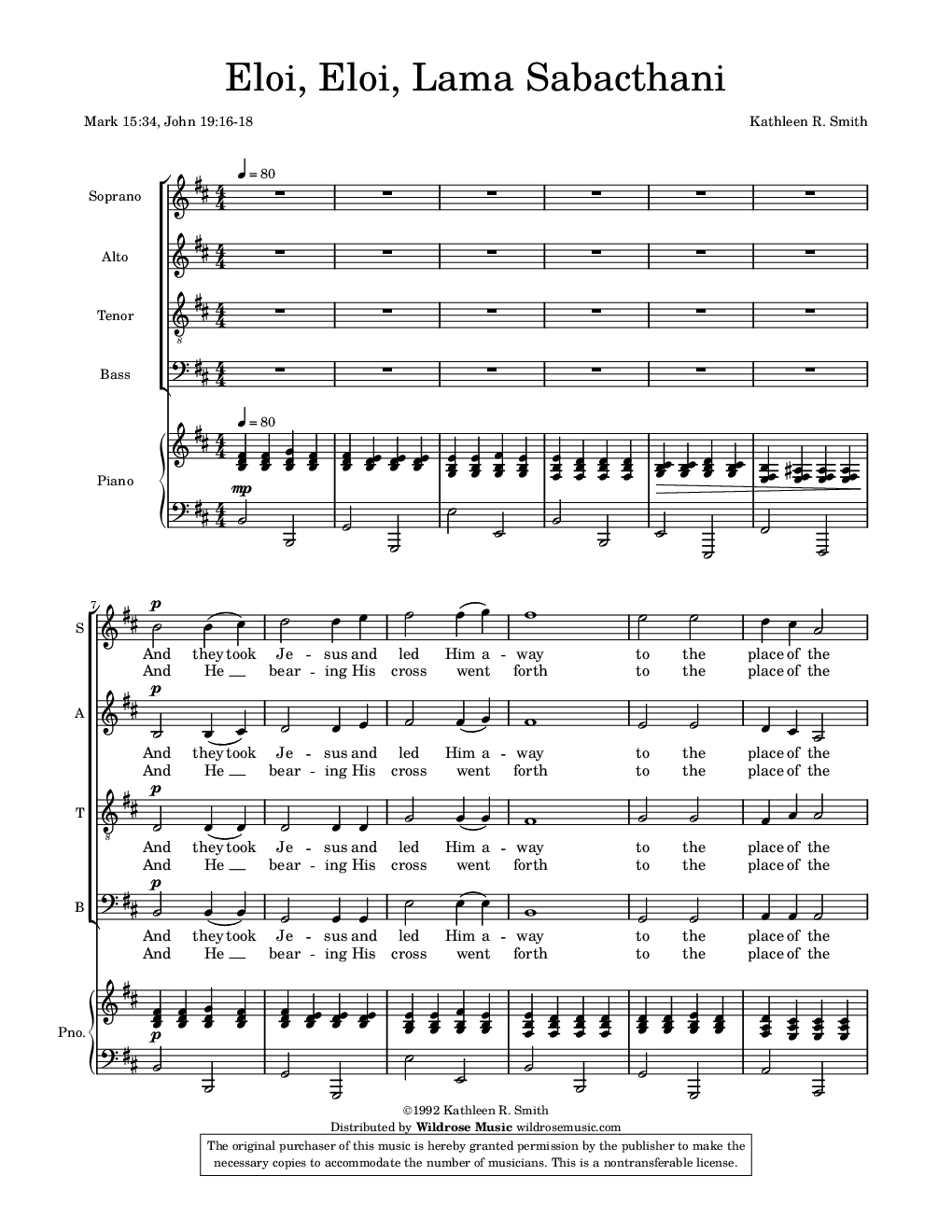
Eloi, Eloi, Lama Sabachthani Wildrose Music
The forms lema and lama used in Matthew and Mark respectively (Westcott and Hort, The New Testament in Greek) represent the various possible forms, the first the Aramaic, and the second the Hebrew. The various readings and translations of the latter word, sabachthani, only add confusion to an effort at ultimate explanation of the real statement.

Eloi Eloi Lema Sabachthani Jesus Christ Photograph by Acropolis De
Mark 15:34 — New American Standard Bible: 1995 Update (NASB95) 34 At the ninth hour Jesus cried out with a loud voice, "Eloi, Eloi, lama sabachthani?" which is translated, "My God, My God, why have You forsaken Me?". And at the ninth hour Jesus cried with a loud voice, "Eloi, Eloi, lema sabachthani?" which means, "My God, my God.

Eloi, Eloi Lema sabachthani Opiekun Dwutygodnik Diecezji Kaliskiej
Vous permettre d'entrer en contact avec notre service de relation aux utilisateurs. Définition biblique de Eloï, lamma sabachtani : Cri de détresse et de désespoir, poussé par Jésus sur la croix qui signifie « Mon Dieu, mon Dieu, pourquoi m'as-tu abandonné ? ». Le cri de Jésus sur la croix nous montre la violence de son agonie.